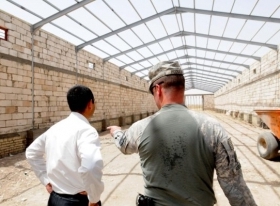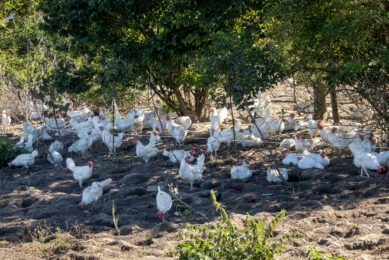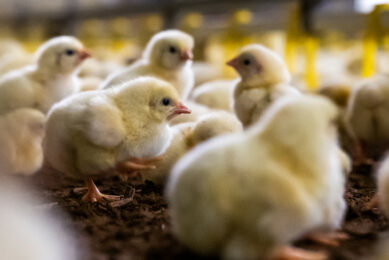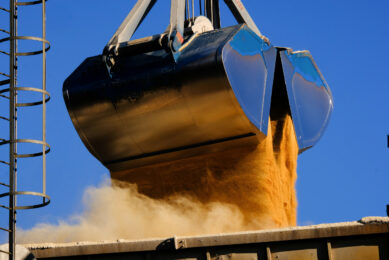Iraqi entrepreneurs build chicken business

Hussein and Dr. Wejdi Alshammary, two brothers and businessmen making a living in Diyala province, Iraq have created the Iraq Grand Parent Company, which is leading the way for the poultry industry in the province.
Almost a year ago the brothers received their first shipment of day-old chicks from Arbor Acres, a subsidiary of poultry breeder Aviagen, to serve as the grandfather flock for all of Diyala province.
Since then, they have constructed a hatchery and they breed and sell chicks to poultry farmers, a feed mill, and a slaughter house in Khalis.
<- <- Hussein Alshammary, co-owner of the Iraq Grand Parent Company shows a US army lieutenant, the frame of what will soon be a building used to store chicken feed on the land he owns just near Baqubah, Iraq.
New feed mill
To meet the high demand, the entrepreneurial duo is building a new feed mill to expand their production capabilities, just north of Baqubah, the provincial capital of Diyala.
These brothers are also working with the Diyala Provincial Reconstruction Team and the US army to create a chicken feed co-operative.
From this partnership, the brothers received micro-grants of $5,000 and vouchers to give to 25 chicken farmers, who purchase chicks and feed from their company throughout Diyala province.
“The Alshammary brothers were selected for this project because they have a lot of experience running poultry operations,” said Mike Rothe, senior economic adviser to the Diyala PRT. “They are willing to invest significant amounts of their own capital for this project.”
Get farmers started
Farmers involved with the co-op will receive micro-grants distributed by the brothers’ company, to buy feed, along with vouchers for additional 20% discounts from the company, giving them up to $5,000 worth of free chicken feed. This saves money while encouraging them to buy in bulk.
This way the farmers will be able to get 14 metric tons of feed and a whole cycle of baby chickens, explained Hussein Alshammary.
Chicken feed in Iraq costs double what it does on the global market, and that creates a struggle for the nation’s poultry farmers.
The heavy subsidies the poultry industry received under the Saddam regime ceased in 2003, causing farmers to struggle to thrive in a free market economy.
The resources they are able to purchase are expensive due to middle-men handling the international shipments.
“The poultry industry in Diyala has faced big problems,” said Hussein. “With this step we are trying to encourage farmers, to put them back on the road to being leaders in the industry.”
Further expansion
The brothers’ company will also expand as a result of this. After construction of their new mill is complete they hope to maximize their production to 10 metric tonnes an hour.
This will double their production and drastically lower the cost of feed for local farmers and open up a new market for them.











